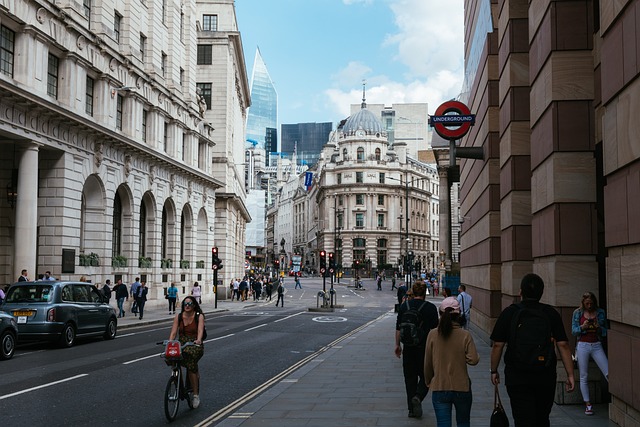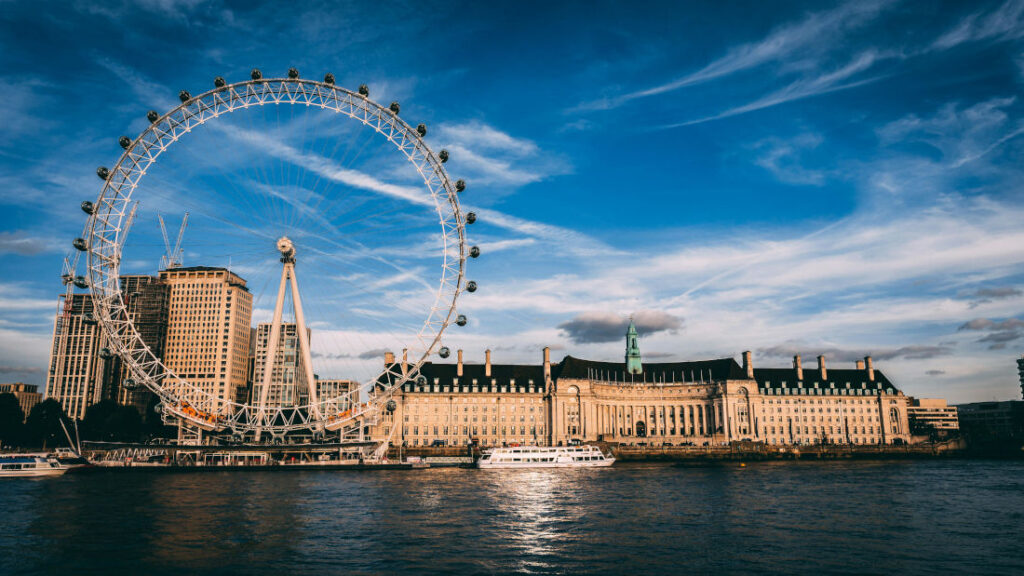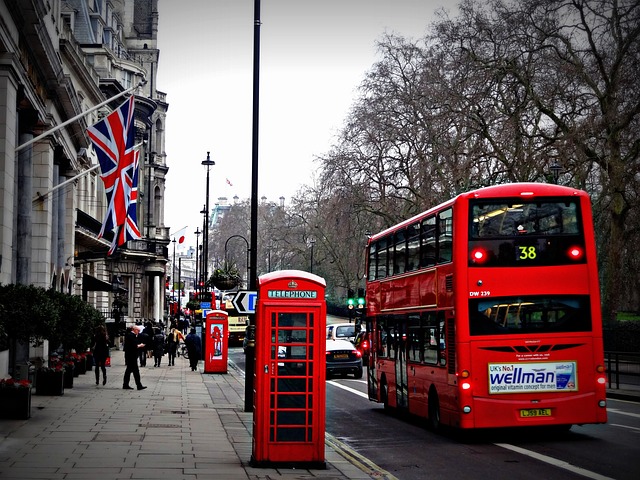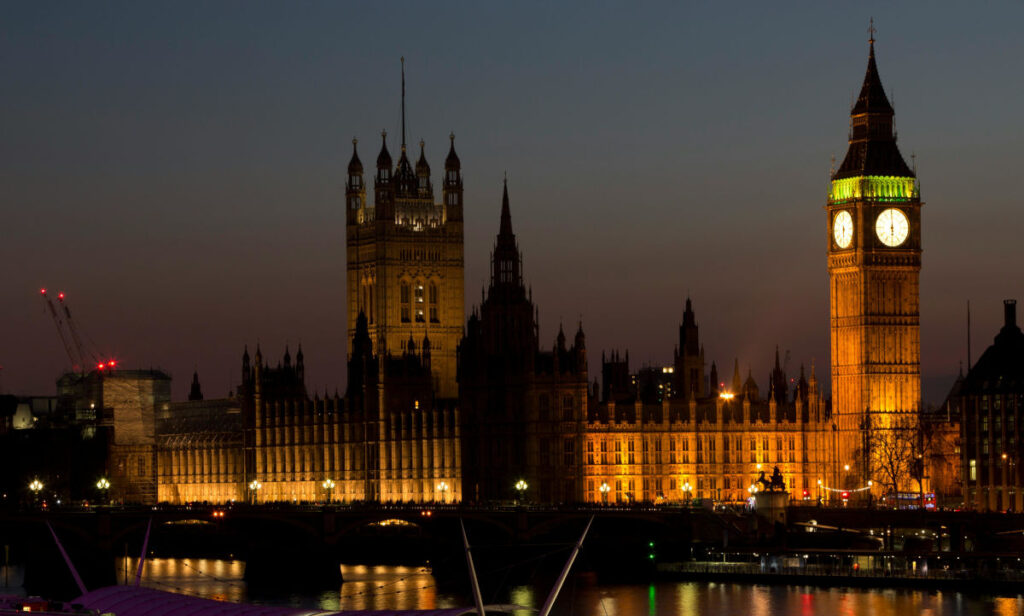London, the capital of the United Kingdom, is a city that effortlessly blends its rich historical heritage with modern innovation. With roots dating back to Roman times, London has grown from a small settlement on the Thames River into a sprawling metropolis and a global leader in finance, culture, and technology.
A Brief History of London’s Growth
London’s origins can be traced back to its founding by the Romans around AD 43, initially named Londinium. The strategic location on the Thames River made it a prime spot for trade and commerce. Throughout the Middle Ages, London expanded rapidly, becoming an essential center for political power and economic activity. The Great Fire of London in 1666 was a pivotal event that led to a significant rebuilding and modernization of the city. The Industrial Revolution in the 18th and 19th centuries further accelerated London’s growth, transforming it into one of the world’s leading cities in terms of population, influence, and economic power.
Population and Diversity
Today, London is home to over 9 million people, making it the largest city in the United Kingdom. The city’s population is incredibly diverse, with more than 300 languages spoken and communities from virtually every country around the globe. This diversity is one of London’s greatest strengths, fostering a vibrant, multicultural environment that attracts people from all walks of life. London’s neighborhoods reflect this cultural richness, from the South Asian communities in Southall to the Caribbean influence in Brixton, making it a microcosm of the world.
Financial Epicenter of Europe


At the heart of London’s global influence is its role as a financial powerhouse. The city’s financial district, known as the Square Mile, is home to the London Stock Exchange, the Bank of England, and numerous financial institutions that drive the global economy.
- Strategic Location: Situated in a convenient time zone that bridges the gap between the markets in Asia and North America, London is ideally positioned for global trade.
- Regulatory Environment: The UK boasts a business-friendly regulatory environment, attracting a plethora of international companies and investors.
- Skilled Workforce: London attracts top talent from around the world, creating a highly skilled and diverse workforce.
- Infrastructure: The city’s world-class infrastructure supports its vast network of businesses, from top-tier transport links to cutting-edge technology hubs.
London’s financial sector contributes significantly to the UK economy, generating billions of pounds in revenue and providing thousands of jobs. The city’s influence extends beyond finance, with thriving industries in technology, media, and the arts.
Major Companies and Their Influence
London is home to some of the world’s most influential companies across various sectors:
- HSBC: One of the largest banking and financial services organizations in the world.
- Barclays: A British multinational investment bank and financial services company.
- Lloyd’s of London: A renowned insurance and reinsurance market.
- Unilever: A global leader in consumer goods.
- BP: One of the world’s largest oil and gas companies.
These companies not only drive London’s economy but also play a pivotal role in the global market, influencing trends and setting standards in their respective industries. The presence of these multinational corporations cements London’s status as a global business hub, attracting investments and talent from around the world.
The Economic Powerhouse

The financial services industry is the backbone of London’s economy, but the city also boasts a robust and diverse economic landscape. The technology sector, often dubbed “Tech City” or “Silicon Roundabout,” has seen explosive growth, with numerous startups and established tech companies setting up shop in the city. London is also a global center for the creative industries, including media, fashion, and the arts, contributing to its reputation as a vibrant and dynamic city.
The economic activity generated by these sectors not only provides jobs and wealth for the city but also has a significant impact on the global economy. The continuous flow of capital, talent, and innovation through London reinforces its position as a critical node in the world’s financial and business networks.
The True Face of London: Overrated or Justly Celebrated?
While London is often celebrated for its vibrant culture, historic landmarks, and economic prowess, some critics argue that its reputation might be somewhat inflated. They point to issues like high living costs, traffic congestion, and pollution as significant drawbacks. Moreover, London’s grandeur and appeal can sometimes overshadow its challenges, leading some to view it as an overrated, old, and dirty city resting on past glories.

However, the city’s ability to continually reinvent itself, attract global talent, and maintain its status as a leading financial center suggests that its popularity is well-deserved. London’s unique blend of history, culture, and modernity makes it a city unlike any other—a place where the past and future coexist seamlessly.
In conclusion, London’s journey from a Roman outpost to a global financial hub is a testament to its enduring significance. Whether you view it as a marvel of modern urban development or an overhyped metropolis, there’s no denying that London holds a unique and influential place in the world. For those interested in the intricate details of its financial landscape, cultural diversity, and more, stay tuned to this blog as we delve deeper into the many facets that make London a city worth exploring.


Pingback: Discover the Secrets of London’s Iconic Red Buses and Black Cabs - Tireless Grandpa
Pingback: Why Dublin is Called Europe’s Silicon Valley and Little New York - Tireless Grandpa
Pingback: Silicon Valley’s Rivals: Discover the New Global Tech Hotspots - Tireless Grandpa